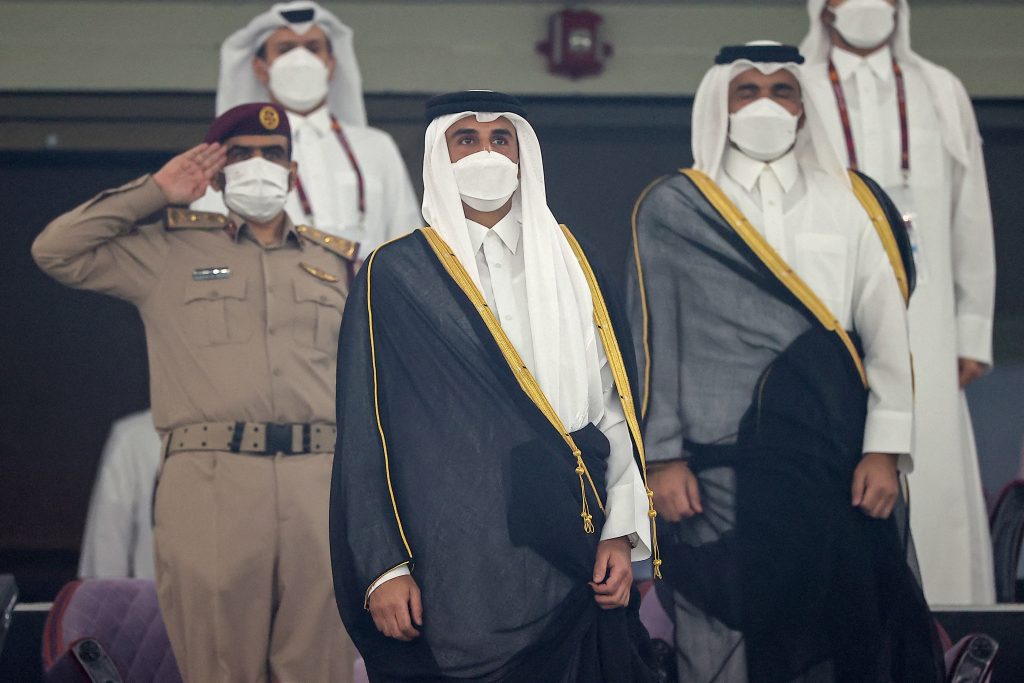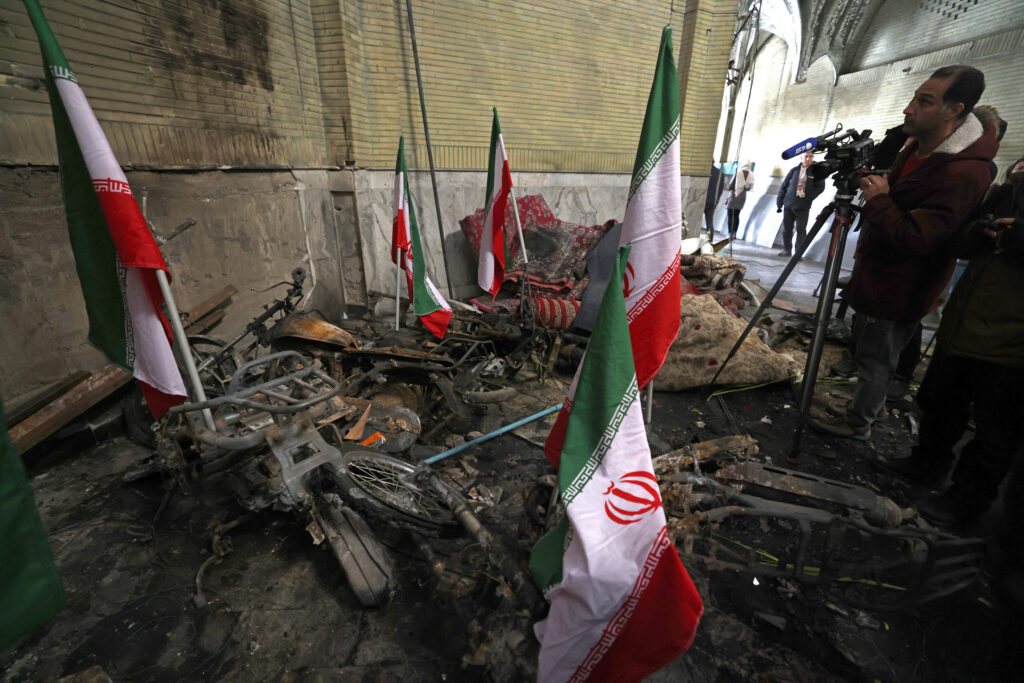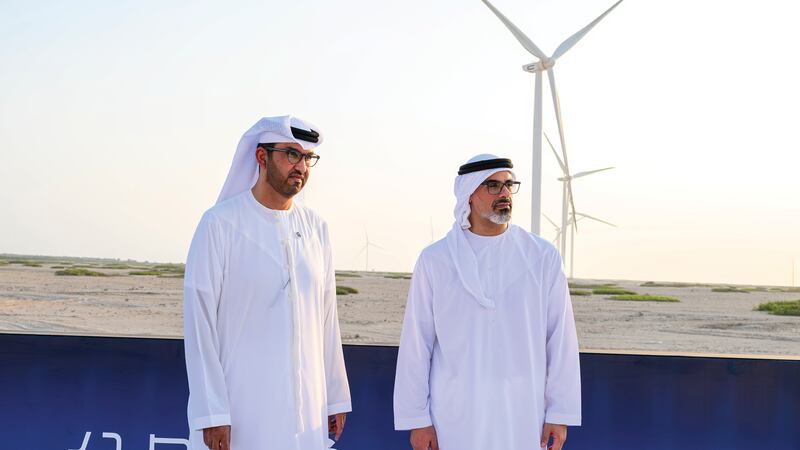By Clemens Chay
On 26 October 2021, Qatari Emir Tamim bin Hamad Al-Thani inaugurated the first session of the elected Shura Council, describing it as a “historical moment”. Since ratifying the Constitution in 2004 – which stipulates that 30 of the Council’s 45 members are “elected by public secret direct ballot” (Article 77) – authorities stalled this move until last November’s official announcement. Until this year’s elections, the assembly had been operating with 35 members appointed by the Emir under the provisions of the Basic Law – the precursor to the 2004 Constitution. While media outlets have lauded this internal reform, these changes should not be mistaken for a sweeping political advance. Qatari politics remains a balancing act between modern and traditional structures, and between leaders and constituents.
A Far from Perfect Political System
Questions have been raised about the representativeness of the newly-elected legislative branch, and whether it has real powers. In a blog post for LSE, Maryam Al Hajri, a PhD candidate at the University of Edinburgh, noted that electoral laws have “reproduced many mechanisms of social exclusion and marginalisation”, echoing a Human Rights Watch report that highlights how these laws constitute a “discriminatory citizenship system” that “disenfranchise[s] thousands of Qataris from voting or running”. Besides problematic tribal-based voting patterns and the alienation of women, the consequences of Qatar’s tiered citizenship model manifested themselves in August protests by members of the Al-Murrah tribe – one of the largest in the country. Their grievances centred around electoral laws that deemed some of them naturalised citizens – and thus not “original” – thus giving them neither voting rights nor eligibility to run for office. In his opening address to the Shura Council last month, Emir Tamim promised to redress wrongs by having the Cabinet prepare the “appropriate legal amendments” to promote “equal Qatari citizenship”. How and when these corrective policies will take place remains to be seen.
The other debatable aspect of the Shura Council is whether it has any legislative powers. As outlined by Article 76 of the Constitution, the council should serve as a “watchdog” over the executive branch. In theory, as Dania Thafer, executive director of the Gulf International Forum, wrote for The Washington Post, the elected-to-appointed member ratio should give the Qatari assembly sufficient leeway to enact laws, block them, and even undertake a vote of no-confidence against a minister. Yet, Emiri prerogative, as set out in Articles 104 and 106 of the Constitution, allows for presidential-like powers that can dissolve the council and reject a Bill “to realise the high interests of the country”.
This has given rise to scepticism over the council’s effectiveness. In a personal correspondence with the author, Mehran Kamrava, a professor of government at Georgetown University-Qatar, said he expected the council’s powers to be “limited” as Doha has no intention to “replicate the dysfunctional nature of the Kuwaiti [political] system”, which often results in legislative-executive deadlock. Instead, he viewed the recent elections as a step towards the “political consolidation of the state” – an argument in his book, Qatar: Small State, Big Politics, which contends that since the reign of the previous Emir, a measure of unity in the ruling family has been established while the state bureaucracy has turned into an expansive network of royal patronage. A retired senior Qatari official who requested anonymity concurred with this view, underscoring in written communication to the author that most council members are pro-government elements, which only “increases the executive’s control”.
Regional Détente Presents Political Openings
A point worth noting is that the timing of the reforms coincided with the thaw in Saudi-Qatar relations. Between Doha’s public statement in November 2020 about impending elections to polling day itself, regional dynamics have shifted dramatically.
Improved Riyadh-Doha relations in 2021 provided an opening to hold Qatar’s Shura Council elections. The Al-Ula declaration in January marked the end of the boycott, and also saw a public embrace between the Qatari Emir and Saudi Crown Prince Mohammad bin Salman. If there were lingering questions over mending fences beyond cosmetics (such as restoring diplomatic representation), these were dispelled by the establishment of a Saudi-Qatar Coordination Council in August to align both countries’ national visions. By September, at a “friendly” meeting by the Red Sea, the Qatari Emir was pictured with the Saudi Crown Prince and the UAE’s National Security Adviser in casual wear. More recently, Doha and Riyadh completed a border accord extending Qatar’s southern coastline to Khawr Al-Udaid, which has been left hanging since being drafted in 2008. According to Gerd Nonneman, a professor of international relations at Georgetown University-Qatar, the favourable regional environment allowed Doha to advance an old political project “without much risk, and to much reputational benefit, especially when set against the increased displays of autocracy in surrounding states”. In the same personal correspondence, Prof Nonneman added that an elected Shura Council would bring Qatar’s domestic image “more in line with the regional foreign policy theme of favouring ‘people power’,” especially when Doha-owned media network Al Jazeera has long been criticised for not practising at home what it preaches outside.
When set against the context of Riyadh’s own views about such political reforms, it becomes clear that Qatar exploited warming ties to move ahead. As senior American national security analyst Anthony Cordesman wrote in his book, Saudi Arabia: Guarding the Desert Kingdom, Riyadh has long viewed Kuwait’s National Assembly as a “symbol of a destabilising tolerance for political dissent”. The same can be said of Qatar’s political reforms. Zarqa Parvez, a Qatar-based academic, remarked in an interview with the author that Doha has long been aware of Riyadh’s concerns over a possible “domino effect” by Shura Councils in neighbouring Gulf states, because of potential spillovers via inter-tribal links that transcend national borders. It would have thus have been unthinkable for Qatar to undertake such reforms during the blockade.
What Happens in Doha Doesn’t Stay in Doha
Doha’s recent political developments, analysts concur, are also a sop to the international media, especially as all eyes are on it in the run-up to World Cup 2022. In a bid to bolster its global image as a forward-looking Arab host nation, the Shura Council elections provided the impression of some public participation, while the absence of an elected female MP is compensated for by the appointment of three women to the Cabinet. Among them, Minister of Social Development and Family, Mariam Al-Misnad, has been publicly welcomed for her vast experience in social work within the Qatari community.
Some Gulf states have used international sports for nation-branding, a move that has reaped rich dividends. But as Craig LaMay, a professor of sport media at Northwestern University, wrote in his chapter for the volume Sport, Politics and Society in the Middle East, the downside to this is “soft disempowerment”, or the loss of attractiveness or influence resulting from international scrutiny. After its treatment of foreign workers involved in the construction of facilities drew widespread condemnation, Doha rolled out reforms to labour laws. These range from mandatory worker contracts between employers and the government to non-discriminatory minimum wages. The creation of a labour ministerial portfolio in the latest Cabinet reshuffle is testament not only to the sharpening of focus on related reforms, but also, as Prof Nonneman remarked, to the recognition by top leadership that this is a “necessary piece […] for a more diversified, productive economy”. Others, such as workers’ rights activist Malcolm Bidali, are less optimistic. In a piece for Doha News, he wrote that “when the dust settles and the rhetoric ends, migrant workers will be at the mercy of these elected [Shura Council] officials”. Recent reports, including one by Amnesty International, signal that progress on the ground has “stagnated and old abusive practices have been resurfacing”.
Everything in its Own Time
It is clear that Doha’s attempts at political reform face challenges, particularly when it comes to persuading both its own citizens as well as the international community that the changes carry real weight. Yet, one must remain level-headed about outcomes. As Hend Al Muftah, a former council member, wrote in Doha News, political pluralism in Qatar is far from what Westerners perceive as ideal. Instead, it is a form of consensus derived from “consultation and cooperation between the ruling family, business families and tribes”. For one, the term “shura” featured in the name of Doha’s legislative branch refers to the Quranic principle of consultation or seeking counsel in decision-making. It is also no wonder that Qatar’s Second National Development Strategy, updated from the original National Vision 2030, makes no direct reference to political developments – only economic, social, human, and environmental ones. The emirate prefers to implement political changes, if any, at its own pace and at an opportune moment. This leaves it vulnerable to criticism. But this should not detract from the fact that the changes being made are a big step for Qatar, or that it will continue to address issues as they arise – at a speed and timing of its choosing.
Image caption: Qatar’s Emir Sheikh Tamim bin Hamad Al-Thani (C) arrives for the Amir Cup final football match between Al-Sadd and Al-Rayyan at the Al-Thumama Stadium in the capital Doha on 22 October 2021. Photo by KARIM JAAFAR / AFP.
About the Author
*Dr Clemens Chay is a Research Fellow at the Middle East Institute at the National University of Singapore who focuses on the history and politics of the Gulf states, with a particular emphasis on Kuwait and Oman. His book project, Kuwait’s Organising Agent, The Diwaniyya, studies the impact of the diwaniyyas (diwawin), places of social gathering for Kuwaiti men. He unveils how these unassuming reception rooms have implications for society, politics and diplomacy. Prior to joining MEI, he was the Al-Sabah Fellow at the School of Government and International Affairs, Durham University, UK.
Dr Chay obtained his PhD in Middle Eastern and Islamic Studies from Durham University, where he also received an MSc in Defence, Development and Diplomacy. He is also a Sciences Po Paris alumnus, having read his BA at the Menton campus.





